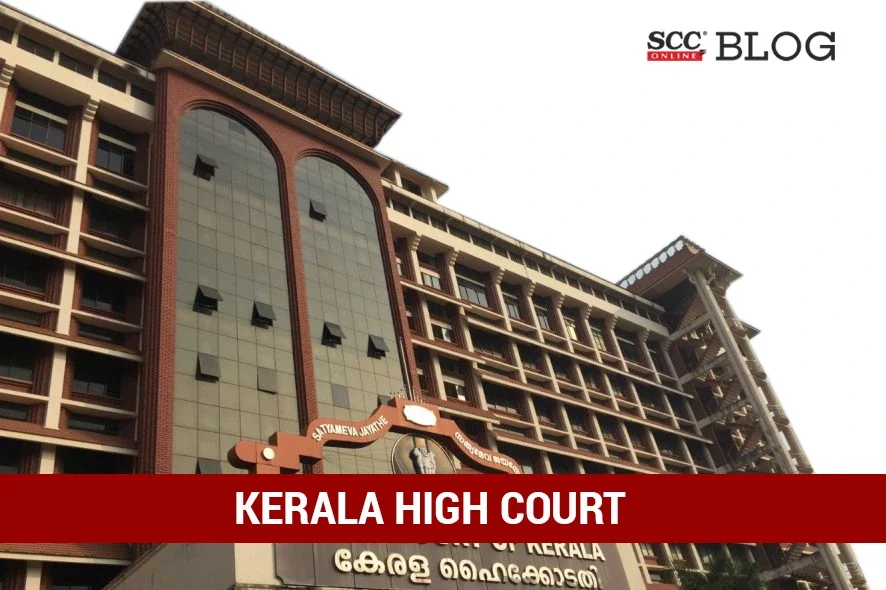Kerala High Court: In an appeal challenging the Trial Court’s judgment which allowed suit for money claiming sum assured under a life insurance policy issued by Life Insurance Corporation (‘LIC’) in which, material facts were suppressed/unfurnished, but the Trial Court regarded the same as fault on part of the LIC agent/employee who filled such proposal form, Sathish Ninan, J. set aside the Trial Court’s decision while holding that the Insurance Company was not liable for false information on insurance application.
As per facts, the deceased submitted a proposal to LIC on 1-11-1993 for insurance of his own life and policy was issued on 14-2-1994 in favour of the deceased with Rs 3 lakhs coverage. He died on 10-7-1995 due to cardiac issues. The respondent, being the nominee under her husband’s life insurance policy, claimed the assured sum on 10-7-1995. The claim was repudiated by LIC alleging that false information was furnished and material facts related to his health were suppressed by the assured/deceased in the proposal, being the basis of commencement of litigation in the instant matter.
LIC officials contended willful and fraudulent negation of prior treatment and deceased’s admission in hospital while answering specific queries in the proposal. The Trial Court regarded the same as default on part of the LIC agent/employee who filled the proposal for which, the company could not be held liable for incorrect facts and suit was decreed for policy amount and benefits, which has been appealed against in the instant matter.
The Court considered the question of whether the deceased furnished false information in the proposal for life insurance policy, and whether such form filled in by the LIC agent relieves the assured person against default for entitlement to insurance claim.
The Court explained that “A contract of insurance is a contract uberrima fidei meaning, ‘of utmost good faith’” while keeping up with the settled law related to insurance contracts, false information, suppression of material information, etc. The Court further pointed out the relevance of a person’s health condition for the insurer to decide on the question of assuring life of any person or deciding the quantum of premium so payable.
The Court relied on Reliance Life Insurance Co. Ltd. v. Rekhaben Nareshbhai Rathod, (2019) 6 SCC 175 wherein the duty of mutual fair dealing was illustrated. The Court explained that “The information provided by a proposer/insured at the time of giving proposal are mostly matters within his knowledge, in exclusion to the insurer. It is on the basis of such details that an insurance company decides to issue a policy on the life and fixes the premium payable.”
It further referred to Satwant Kaur Sandhu v. New India Assurance Co. Ltd., (2009) 8 SCC 316 and the definition of ‘proposal form’ as provided under Regulation 2(d) of the Insurance Regulatory and Development Authority (Protection of Policyholders’ Interests) Regulations 2002, explanation of ‘material fact’ as in United India Insurance Co. Ltd. v. M.K.J. Corpn., (1996) 6 SCC 428 and Modern Insulators Ltd. v. Oriental Insurance Co. Ltd., (2000) 2 SCC 734.
With the help of above sources, the Court concluded that false information or suppressed material facts while availing an insurance policy is decisive of the validity of such policy. In the instant case, the deceased had denied of being admitted to any hospital/nursing home for general check-up/treatment/operation, while some medical records disclose admission to the hospital in 1992 for almost a week regarding treatment as an inpatient through a cardiologist. The Court took the same not a mere willful suppression of relevant facts but furnishing false information to avail the said policy.
The Court expressed that the instant case was not mere omission in furnishing facts but a case of positive assertion of a fact which was incorrect to the deceased’s knowledge. The Court explained that specific query seeking details of previous treatment in the proposal form could not be missed from ‘material facts’ by any stretch of imagination.
The Court disagreed with the Trial Court’s finding that the LIC agent filled in incorrect details and the responsibility could not be fastened on the deceased. The Court explained that even if that is the case, the LIC agent would have followed the instructions of the deceased while filling in the proposal form, which would have been signed by the deceased undertaking that the entries were true and correct. Such a person cannot say that someone else filled in the proposal form and he signed the same without reading/understanding. The same was also turned down in the case of Reliance Life Insurance Company (supra).
The Court refused to accept/countenance the contention and held that the LIC was not liable under the false insurance policy in question and could repudiate the same. The Court set aside the Trial Court’s decree and judgment.
[Life Insurance Corporation of India v. Rosamma Varkey, 2023 SCC OnLine Ker 3359, decided on 25-5-2023]
Judgment authored by: Justice Sathish Ninan
Advocates who appeared in this case :
For Appellants: Advocate R.S. Kalkura;
For Respondents: Advocate C.P. Ravikumar.






